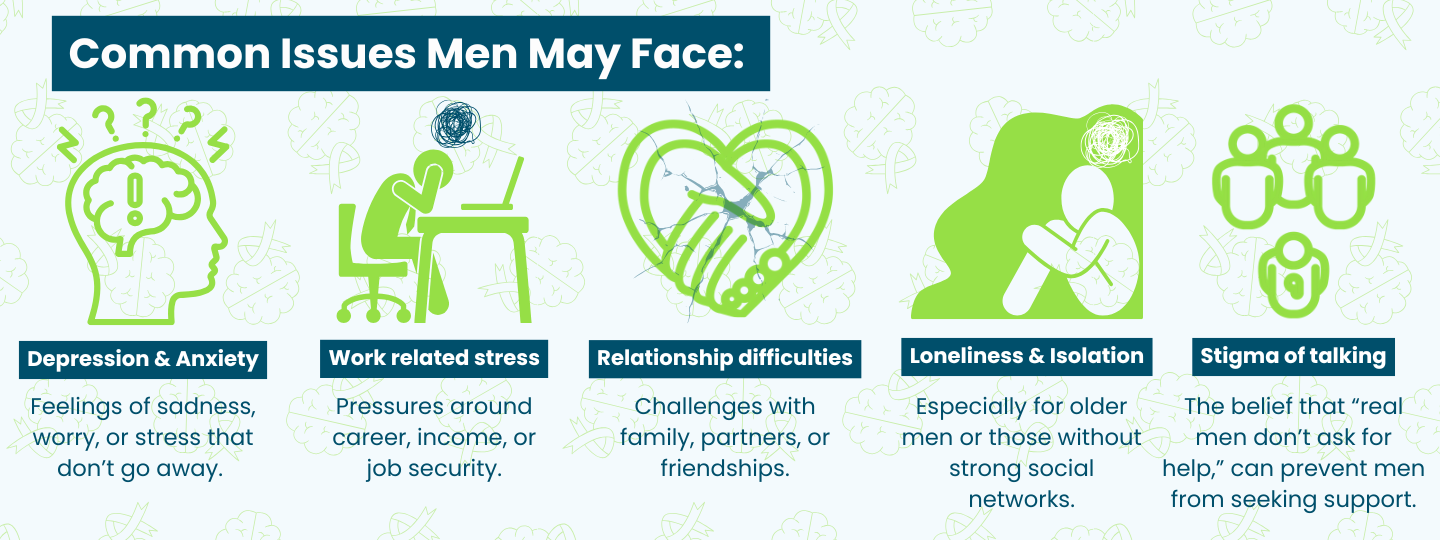This independent review aims to understand better the experiences of men in Warrington: how they access support, what barriers they face, and what improvements they feel are needed.
Whether you've used services or not, your insights will help shape future care and ensure services are inclusive, accessible, and responsive to men's needs. Your feedback will be used to inform local providers, commissioners, and decision-makers, helping to improve services for men across Warrington.
Have your say
Why Men’s Mental Health Matters?
Mental health affects everyone, but men often face unique challenges.
In many communities, men often feel pressure to appear strong, avoid showing vulnerability, or keep their struggles private. This can make it harder to talk about feelings or ask for help when it’s needed most.
What to look for?
Men find it difficult to accept they need help or are struggling or even look for help in the first instance.
If they knew where to look, they would understand that it's okay not to be OK and acknowledge that help is out there.
Statistics show that:
- Around 1 in 8 men experience a common mental health condition such as depression or anxiety.
- Men are often less likely to seek support for mental health concerns compared to women.
- In the UK, suicide is the leading cause of death for men under 50, highlighting the urgent need for open conversations and accessible support.

Breaking the Stigma
Talking about mental health is a sign of strength, not weakness. Opening up to a friend, family member, or professional can make a huge difference. Community groups and peer support networks also play an important role in helping men feel less isolated and more understood.
Where to get support?
GP or healthcare professional – for confidential advice and treatment.
Local community groups – many voluntary organisations in Warrington offer peer support and safe spaces for men.
Helplines and online support – services like Samaritans (116 123) or Mind provide free, 24/7 help.
Workplace support – employee assistance programmes and HR teams can provide resources.
YOU ARE NOT ALONE
Many men struggle with their mental health, but it’s not always talked about. Stress, low mood, anxiety, and loneliness are common, and asking for help is a sign of strength, not weakness.
It’s Okay to Talk
Men sometimes feel pressure to “stay strong” or keep problems to themselves. But opening up to a friend, family member, or support group can make a big difference. Talking is the first step towards feeling better.

